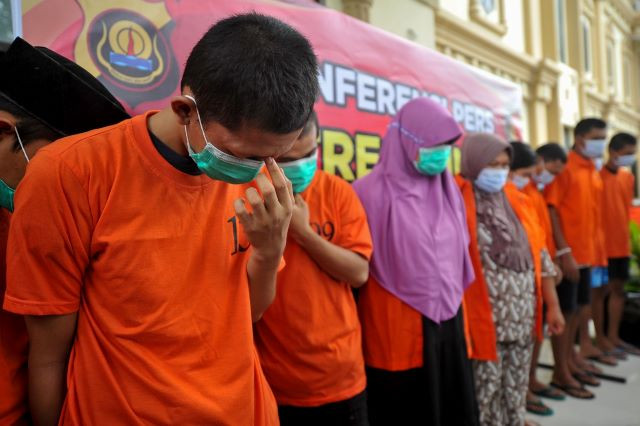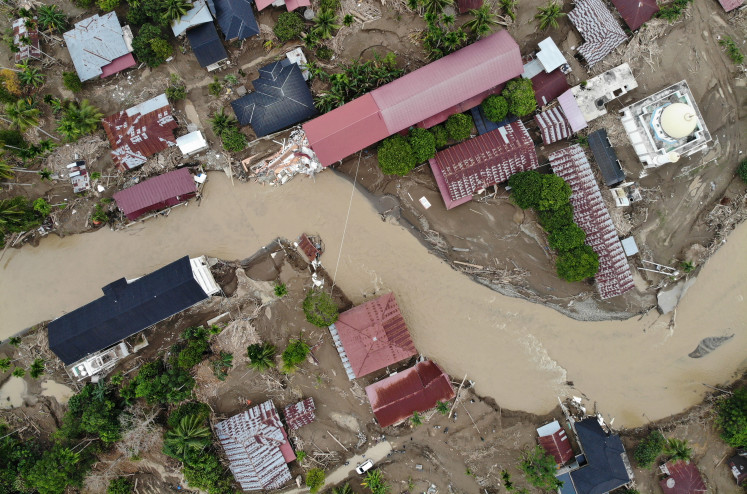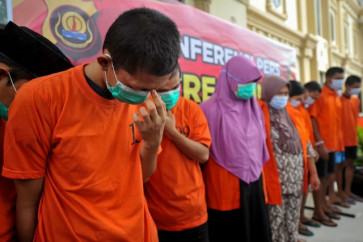Popular Reads
Top Results
Can't find what you're looking for?
View all search resultsPopular Reads
Top Results
Can't find what you're looking for?
View all search resultsHuman trafficking and illegal organ trade: A call for reform
The recent arrest of a police officer and an immigration officer allegedly involved in the organ trade demands a thorough investigation of corruption within the police force.
Change text size
Gift Premium Articles
to Anyone
T
he shocking revelation of an illegal organ trade involving Indonesian law enforcement officials highlights the deeply concerning nexus between human trafficking, illegal organ trade and corruption within law enforcement institutions.
The recent case of traffickers exploiting people and selling their kidneys in Cambodia underscores the urgent need for comprehensive measures to prevent and combat such abhorrent crimes. With over 2,100 trafficking victims rescued, and more than 800 suspects linked to illegal schemes, Indonesia must adopt a coordinated and multifaceted approach to confront the growing challenges of transnational crimes, which are fueled by advancements in technology.
The entwined nature of human trafficking and the illegal organ trade calls for a targeted response from law enforcement agencies and the government. The exploitation of vulnerable job seekers in human trafficking rings exposes the interconnectedness of these crimes. Victims lured by promises of employment fall prey to the organ trade, leaving them traumatized and in dire straits. The involvement of law enforcement officials in such criminal enterprises further exacerbates the challenges in combating these crimes.
Corruption within police institutions weakens the integrity of law enforcement and undermines the fight against human trafficking and illegal organ trade. The recent arrest of a police officer and an immigration officer allegedly involved in the organ trade demands a thorough investigation of corruption within the police force. Rooting out corrupt practices and ensuring accountability within the ranks is essential to upholding the rule of law and protecting future victims.
The Indonesian regulation concerning human trafficking is stipulated under Law No 21/2007 on Elimination of Human Trafficking Crimes and Migrant Worker Protection Law No 18/2017. To effectively combat human trafficking and illegal organ trade, Indonesia must strengthen its legal frameworks and ensure that they are in line with international best practices. Stricter penalties for law enforcement officials involved in these crimes will serve as a powerful deterrent and demonstrate the government’s commitment to upholding justice.
In a significant step toward combating human trafficking, President Joko “Jokowi” Widodo instructed the formation of an Anti-Human Trafficking Task Force coordinated by the Criminal Investigation Agency (Bareskrim) of the National Police on June 10. This specialized taskforce will play a crucial role in intensifying efforts to dismantle trafficking networks and enhancing cooperation with international partners in tackling transnational crimes.
Another relevant issue in the realm of transnational crimes is the online fraud syndicate, which operates servers overseas and facilitates connections between Indonesian players and foreign individuals involved in the business. This demands a coordinated approach from international law enforcement. Extraterritorial jurisdiction plays a crucial role in protecting a state’s interests when dealing with crimes committed beyond its borders.



















